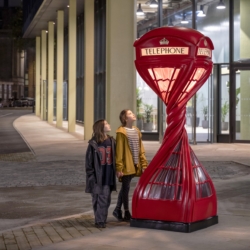September 3, 2025
BCO pilots new office grading system as industry calls for reform
 The UK’s office grading system is no longer fit for purpose, according to new research from the British Council for Offices (BCO). A report authored by JLL for the BCO found that fewer than three percent of professionals in the sector support the current system, with almost all calling for change. The report, Redefining the Market: Beyond Grade A, proposes a new scoring-based framework designed to reflect the shifting priorities of occupiers, investors and developers in an era shaped by flexible working. It sets out a 100-point matrix across four categories – physical quality, sustainability, technology and amenity – aiming to provide a more transparent and adaptable standard. (more…)
The UK’s office grading system is no longer fit for purpose, according to new research from the British Council for Offices (BCO). A report authored by JLL for the BCO found that fewer than three percent of professionals in the sector support the current system, with almost all calling for change. The report, Redefining the Market: Beyond Grade A, proposes a new scoring-based framework designed to reflect the shifting priorities of occupiers, investors and developers in an era shaped by flexible working. It sets out a 100-point matrix across four categories – physical quality, sustainability, technology and amenity – aiming to provide a more transparent and adaptable standard. (more…)





































June 5, 2025
The enduring allure of workplace bullshit
by Mark Eltringham • Comment, Wellbeing, Workplace design
(more…)